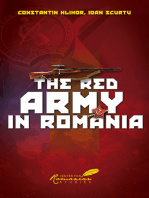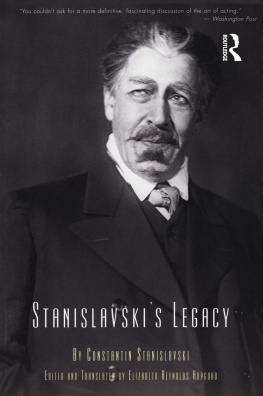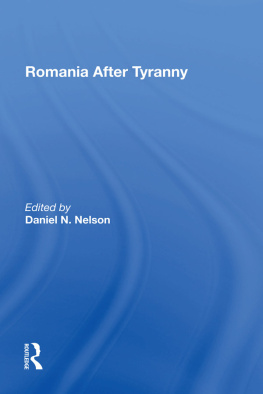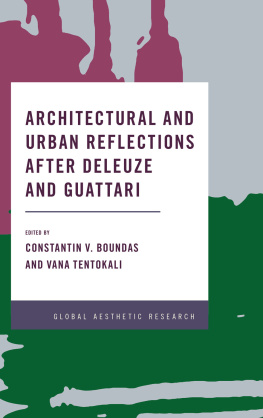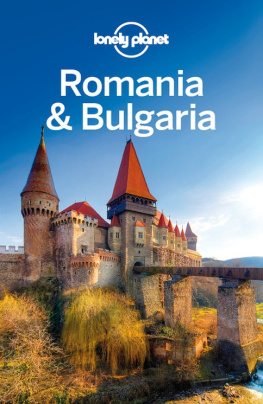Constantin Hlihor Hlihor - The Red Army in Romania
Here you can read online Constantin Hlihor Hlihor - The Red Army in Romania full text of the book (entire story) in english for free. Download pdf and epub, get meaning, cover and reviews about this ebook. genre: Politics. Description of the work, (preface) as well as reviews are available. Best literature library LitArk.com created for fans of good reading and offers a wide selection of genres:
Romance novel
Science fiction
Adventure
Detective
Science
History
Home and family
Prose
Art
Politics
Computer
Non-fiction
Religion
Business
Children
Humor
Choose a favorite category and find really read worthwhile books. Enjoy immersion in the world of imagination, feel the emotions of the characters or learn something new for yourself, make an fascinating discovery.
- Book:The Red Army in Romania
- Author:
- Genre:
- Rating:5 / 5
- Favourites:Add to favourites
- Your mark:
- 100
- 1
- 2
- 3
- 4
- 5
The Red Army in Romania: summary, description and annotation
We offer to read an annotation, description, summary or preface (depends on what the author of the book "The Red Army in Romania" wrote himself). If you haven't found the necessary information about the book — write in the comments, we will try to find it.
The Red Army in Romania — read online for free the complete book (whole text) full work
Below is the text of the book, divided by pages. System saving the place of the last page read, allows you to conveniently read the book "The Red Army in Romania" online for free, without having to search again every time where you left off. Put a bookmark, and you can go to the page where you finished reading at any time.
Font size:
Interval:
Bookmark:
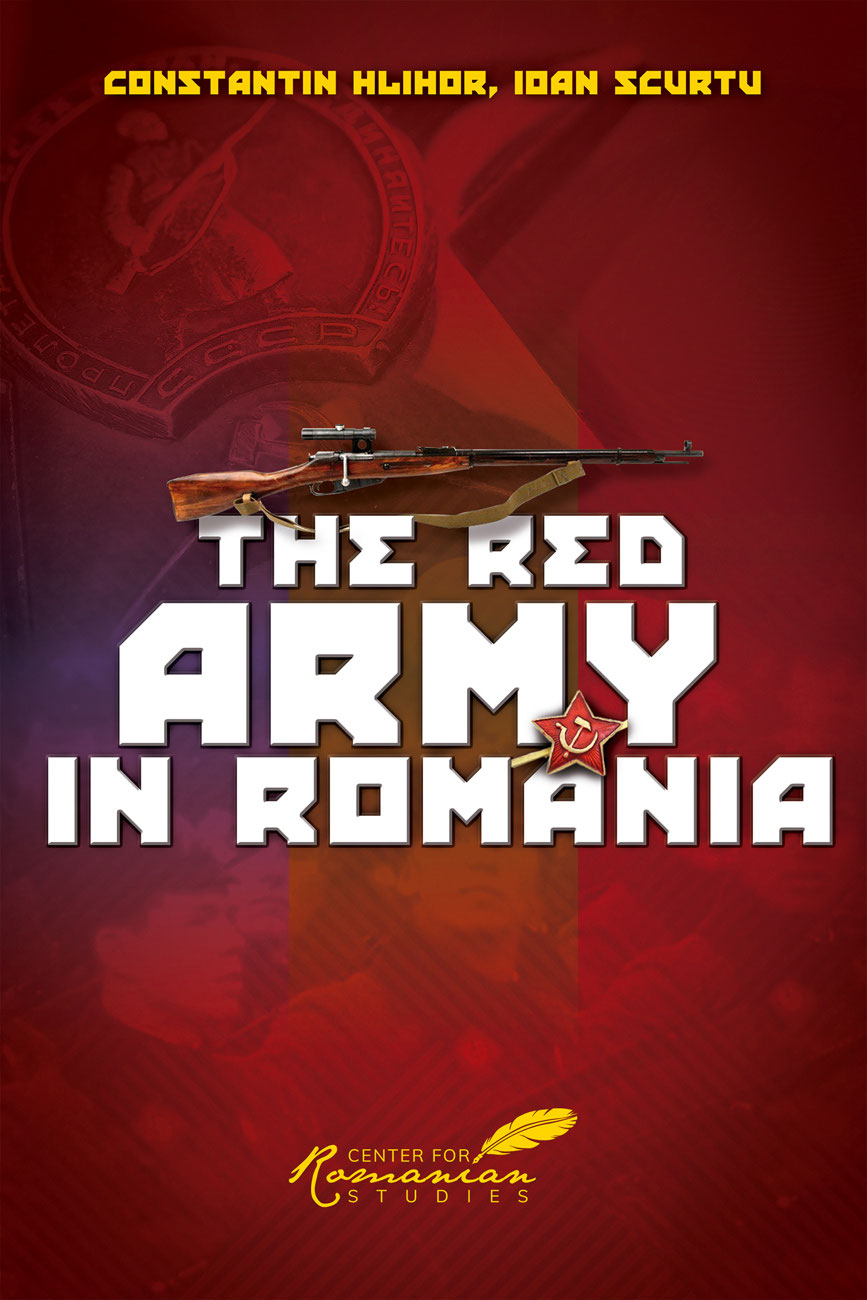
The Red Army
in Romania
Constantin Hlihor and Ioan Scurtu
The Red Army
in Romania

Las Vegas Chicago Palm Beach
Published in the United States of America by
Histria Books, a division of Histria LLC
7181 N. Hualapai Way, Ste. 130-86
Las Vegas, NV 89166 USA
HistriaBooks.com
The Center for Romanian Studies is an independent academic and cultural institute with the mission to promote knowledge of the history, literature, and culture of Romania in the world. The publishing program of the Center is affiliated with Histria Books. Contributions from scholars from around the world are welcome. To support the work of the Center for Romanian Studies, contact us at:
All rights reserved. No part of this book may be reprinted or reproduced or utilized in any form or by any electronic, mechanical or other means, now known or hereafter invented, including photocopying and recording, or in any information storage or retrieval system, without the permission in writing from the Publisher.
Second Printing, 2021
Library of Congress Control Number: 2020938266
ISBN 978-973-98392-5-9 (hardcover)
ISBN 978-1-59211-077-3 (paperback)
ISBN 978-1-59211-121-3 (eBook)
Copyright 2000, 2022 by Histria Books
This book deals with a specific period in Romanias history the years from 1940 to 1958 marked by the presence of foreign troops on Romanian soil. During the first stage, in the summer of 1940, Soviet troops occupied a part of Romanian territory due to the agreements concluded between Nazi Germany and the Soviet Union, sanctioned in the Molotov-Ribbentrop Pact. During the latter part of World War II, the Red Army occupied all of Romania as a result of military operations against Nazi Germany and certain stipulations of the Armistice Convention signed in Moscow on 12 September 1944 by both the Romanian Government and representatives of the United Nations Coalition.
Considering the course of the war and its logical outcome, as well as the rules and principles of international law, the Supreme Soviet Command should have withdrawn the Red Army from Romanias sovereign territory at the end of the war. However, the principles of war seemed to be outdated. This would be acknowledged by Stalin himself in a discussion with a delegation of Yugoslav Communists. Stalin stated that World War II was not compatible with traditional rules of warfare: Any state which occupies a territory imposes its own social system in the respective territory. Each state imposes its own social system as far as its army can reach. The Soviet dictator obtained the approval of American and British leaders for maintaining the presence of Soviet troops in Romania.
The Red Army had to serve, in the minds of the Kremlin leadership, not only as an instrument of occupation, but also a propagator of Communist regimes in the countries where means for control and political pressure had to be established. From this perspective, the presence of Soviet troops in Romania had dramatic and long-term consequences. Politically, the presence of the Red Army was supposed to guarantee the establishment of a regime modeled on the Soviet Union. Molotov himself later asserted: Socialism in Romania survives only due to the Soviet army; if the Soviet army retreats from Romania, the Socialist movement will collapse as well.
This book examines the role of the Soviet occupation troops in changing the Romanian political regime between 1944-1948. Readers are offered the opportunity to become acquainted with certain aspects which, until now, have been neglected by contemporary historiography, such as the impact of the presence of Soviet troops on the Romanian economy. Taking into account the concrete circumstances of the stationing of these military units in Romania, the real extent of the damage may never be known. Nevertheless, an examination of archival records provides information regarding the losses to the Romanian economy; these resulted from illegal or abusive deliveries and confiscations, as well as from the purchasing of certain goods at prices far below those on the domestic and international market.
Without exaggerating or generalizing, this book also focuses on the influence exerted by the Soviet military occupation upon the civilian population and Romanian culture and spirituality. The abuses, robberies, crimes, and murders committed by soldiers of the Red Army had profound consequences upon individuals and society as a whole, leading to a resistance movement among those who were subject to such abuses.
The documents included in the appendix reveal the evolution of the policies of Romanian political leaders, from unconditional acceptance of the presence of Soviet troops in Romania, to endeavoring to obtain approval for their withdrawal, which they finally succeeded in doing in 1958. This work is based on documents from those times, which are located in Romanian and foreign libraries and archives, published in volumes, or taken from other sources (legal papers, memos, and the press); in addition, this work makes ample use of books and studies concerning the evolution of Romanian society during the period from 1940 to 1960 published by Romanian and foreign historians.
Without pretending to be a definitive study, this book intends to bring to light new information and to make better understood this significant chapter in the history of Romania, placing it in the context of international developments. We hope that it will inspire additional research on this important topic.
Constantin Hlihor, Ioan Scurtu
The history of the Russian Empire from Peter the Great to Stalin is the story of territorial expansion. The ambition to control the Black Sea basin, the mouth of the Danube, and all of Southeastern Europe was a constant goal of Russian and, later, Soviet foreign policy. The success or failure of these ambitions closely depended on the ability of Moscow to control, totally or partially, politically or military, Romanian territory.
From this perspective, Russian policy toward the Romanians, whether guised in tones of Orthodox pan-Slavism or the Marxist Gospel, had the same goal: the annihilation of Romanias capacity for resistance and the elimination of a difficult obstacle along its path of expansion toward the Bosphorus Straits, the Dardanelles, and the Balkans. To this end depending on the historical period and the concrete geopolitical conditions all possible methods and means have been used, from skillful diplomacy to military aggression, including invasion and occupation.
Over the course of the eighteenth and nineteenth centuries, Russian armies invaded Romanian territory several times. Historians assess that each generation had to bear, during this period, the consequences of two or three Russian military occupations, not to mention the fact that a part of Romanian territory was annexed to Tsarist Russia in 1812.
The end of the nineteenth century and the beginning of the next century was a period absent of threats and the specter of invasion from the East for the Romanians. Russian expansion continued as a reputed French specialist, Admiral Castex, pointed out in perfect symmetry, both toward the East and the West. In the period between 1877 and 1914, Russian armies were involved in the Far East and thus Romanian territory became the target of diplomatic and propagandistic aggression. Imperial Russia constantly opposed, in the press and in historical books, the union of Bessarabia with its mother country.
Next pageFont size:
Interval:
Bookmark:
Similar books «The Red Army in Romania»
Look at similar books to The Red Army in Romania. We have selected literature similar in name and meaning in the hope of providing readers with more options to find new, interesting, not yet read works.
Discussion, reviews of the book The Red Army in Romania and just readers' own opinions. Leave your comments, write what you think about the work, its meaning or the main characters. Specify what exactly you liked and what you didn't like, and why you think so.

